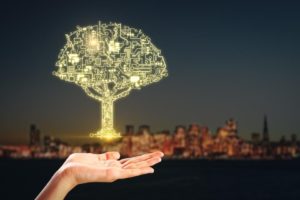 A new report from the consultancy PwC, commissioned by software giant Microsoft, looks at how the twin, powerfully disruptive megatrends of digitization and decarbonisation could come together in future and it concludes that AI could make a significant dent in global greenhouse gas (GHG) emissions.
A new report from the consultancy PwC, commissioned by software giant Microsoft, looks at how the twin, powerfully disruptive megatrends of digitization and decarbonisation could come together in future and it concludes that AI could make a significant dent in global greenhouse gas (GHG) emissions.
PwC looks at how applying AI in four sectors – agriculture, water, energy and transport – could help make these industries more sustainable. It says that using AI for environmental applications could boost the global economy by up to $5.2 trillion in 2030, a 4.4% increase on the business-as-usual scenario, while reducing GHG emissions worldwide by 4%. Examples of how AI can help industries become more sustainable include:
- Transforming agricultural production by better monitoring and managing environmental conditions and crop yields.
- Driving higher efficiency in the energy sector through intelligent grid systems that use deep predictive capabilities to manage demand and supply and optimize renewable energy solutions.
- AI applications in the transport sector can allow cargo and people to move between places more safely, efficiently, and sustainably in an increasingly globalized and urbanized world. For example, AI technologies have a large role to play in enabling more accurate traffic prediction, real-time journey planning, and autonomous vehicle technologies.
- Applying AI in water resource prediction, management and monitoring can help to ameliorate the global water crisis by reducing or eliminating waste, as well as lowering costs and lessening environmental impacts.
AI applications in energy (up to -2.2%) and transport (up to -1.7%) have the largest impact on GHG emissions reduction of the sectors covered, but water and agriculture have an important role to play for the environment more broadly.
Source: “AI Will Be a Vital Tool in Making The Global Economy More Sustainable and Efficient”, Forbes
